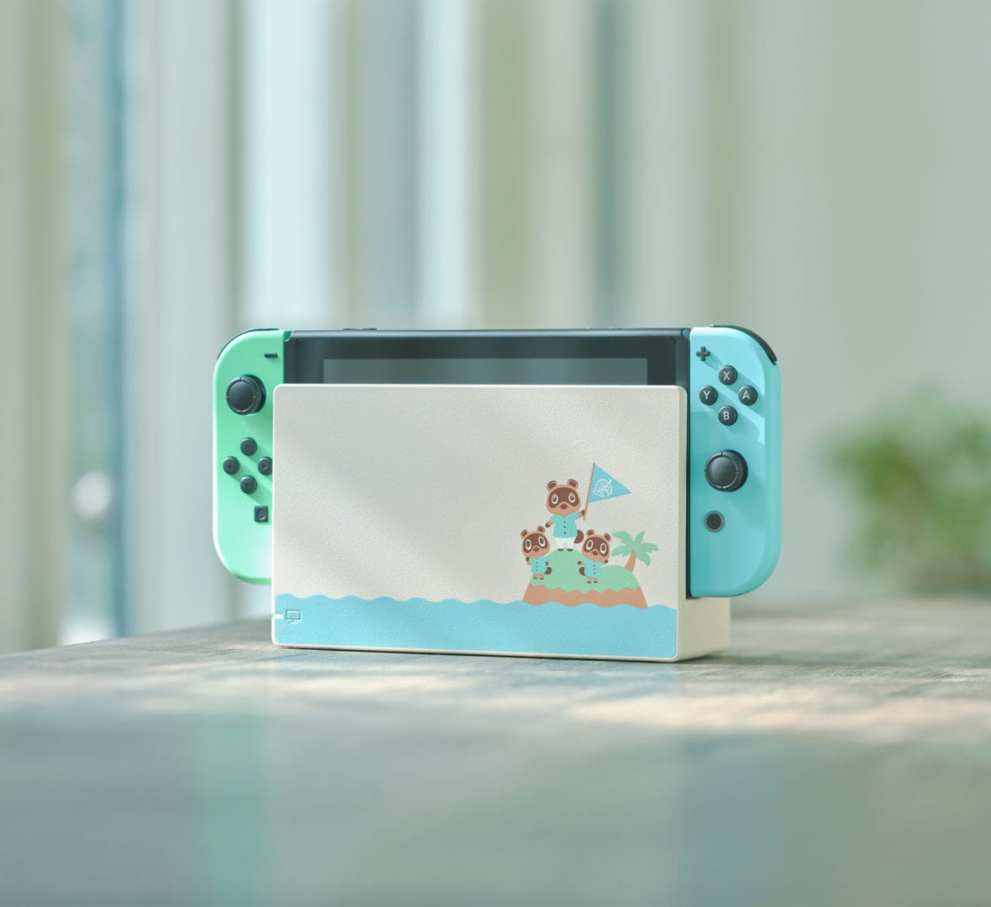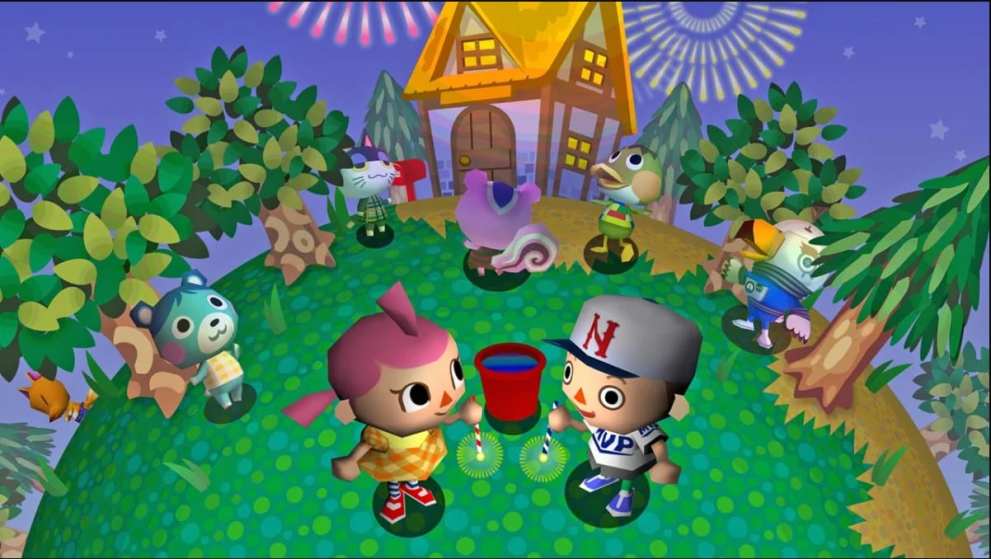Last week, Nintendo went ahead and sent Animal Crossing fans into overdrive with a special edition Nintendo Switch that’ll release one week before the latest entry in the series, New Horizons, on March 13.
It looks great, with pastel green and blue-colored Joy-Con and an island-inspired dock, with Tom Nook, Timmy, and Tommy all staring back at you. I mean, just look at it!

Animal Crossing fans threw cash at their screens, fed their bank cards into their disc drives, just about anything they could think of to pre-order one of these stylish Switches (we’re joking, please don’t try this). But then, it was revealed that Animal Crossing: New Horizons will only allow for one island per Nintendo Switch system.
The news was initially spotted over on the official page for the game on the Nintendo AU website. It states “Please note: only one island can exist per Nintendo Switch console, irrespective of the number of users registered to or copies of the game used on one console.“
The reception hasn’t been all that positive. Fans appear to feel disappointed and a little surprised about the fact they’ll only be able to have the one island on their Nintendo Switch. The question is… why?
Ever since Animal Crossing hit the N64, the series has always opted to bundle multiple human players (residents) into one town. Animal Crossing on the GameCube only allowed you to have multiple towns if you had multiple memory cards, which often came at a bit of a premium back then.
Wild World on the DS, City Folk on the Wii, and New Leaf on the 3DS all also lumped all human residents into the same village stuffed with anthropomorphic pals to befriend. It was never, seemingly, an issue.
The one island limit in New Horizons isn’t just a non-issue because it continues doing what the series has always done, but because having multiple human residents in one village only helps to enhance the Animal Crossing experience.

Back on the GameCube version, I had a whole load of fun pranking my brother with pitfalls around his house, admiring his interior decor, seeing who could fill out the most entries in the museum, and letting one another know of crazy events so we could quickly load up our villager and check it out ourselves. Think Redd’s dodgy goods, Katrina’s fortune-telling, or Gulliver and his wonders of the world souvenirs.
Then there are the subtle ways that Animal Crossing makes you and your fellow human residents feel like a part of the community. They share your letters with the other human players, will adopt nicknames given by one of you, and tell you stories of the conversations they’d shared.
That sense of community then translates into a feeling of onus for all human residents. You’ve got to chip in to keep the town looking perfect, to have that museum proudly flaunting the complete fossil collection, to decide upgrades for your town. Or ignore it all and pursue a massive mansion. Sure you can do that all on your own, but do you really want to?
I get it. Having the option — especially in 2020 — to have multiple islands on one Nintendo Switch would have been great, and is almost expected. When almost every other game on the system can have multiple save files, and the Switch has user accounts, it’s disappointing that Animal Crossing: New Horizons — with its massive, passionate fanbase — will be the only exception to that rule.
It’s the exception, though, because Nintendo’s pushing players towards the vision it had for how Animal Crossing should be experienced. As noted by Eurogamer, Animal Crossing creator Katsuya Eguchi in a 2006 interview with Gamasutra discussed this:
“Another thing is that I’d always get home really late. And my family plays games, and would sometimes be playing when I got home. And I thought to myself – they’re playing games, and I’m playing games, but we’re not really doing it together. It’d be nice to have a play experience where even though we’re not playing at the same time, we’re still sharing things together. So this was something that the kids could play after school, and I could play when I got home at night, and I could kind of be part of what they were doing while I wasn’t around. And at the same time they get to see things I’ve been doing. It was kind of a desire to create a space where my family and I could interact more, even if we weren’t playing together.”
Eguchi touches on what makes playing Animal Crossing — particularly in a shared island/ town — so special. Despite possibly not seeing one another all day, you know that once you’ve both sat down for an hour or so doing little chores around your town that you’ll sit there for a good 20-30 minutes talking about the state of your town. Your dreams of paying off the ludicrous loan Tom Nook kinda extorted you into. What new shops may appear or what form Nook’s shop will take next.
What I’m trying to say is that, much like real-life, having others get involved in your Animal Crossing life only helps to enhance your experiences. Be it the island getaway Tom Nook has crafted for what we can only assume is his own personal financial gain, or having some friends to spend time with in the real world. Everything’s better together.
